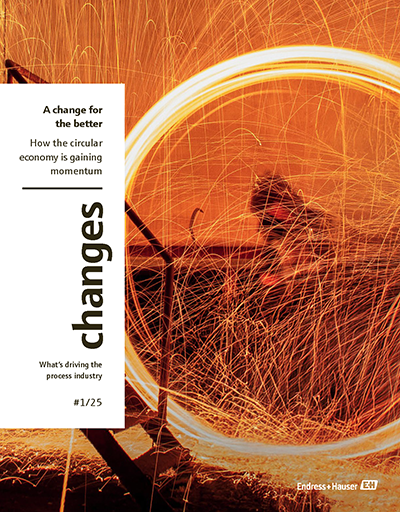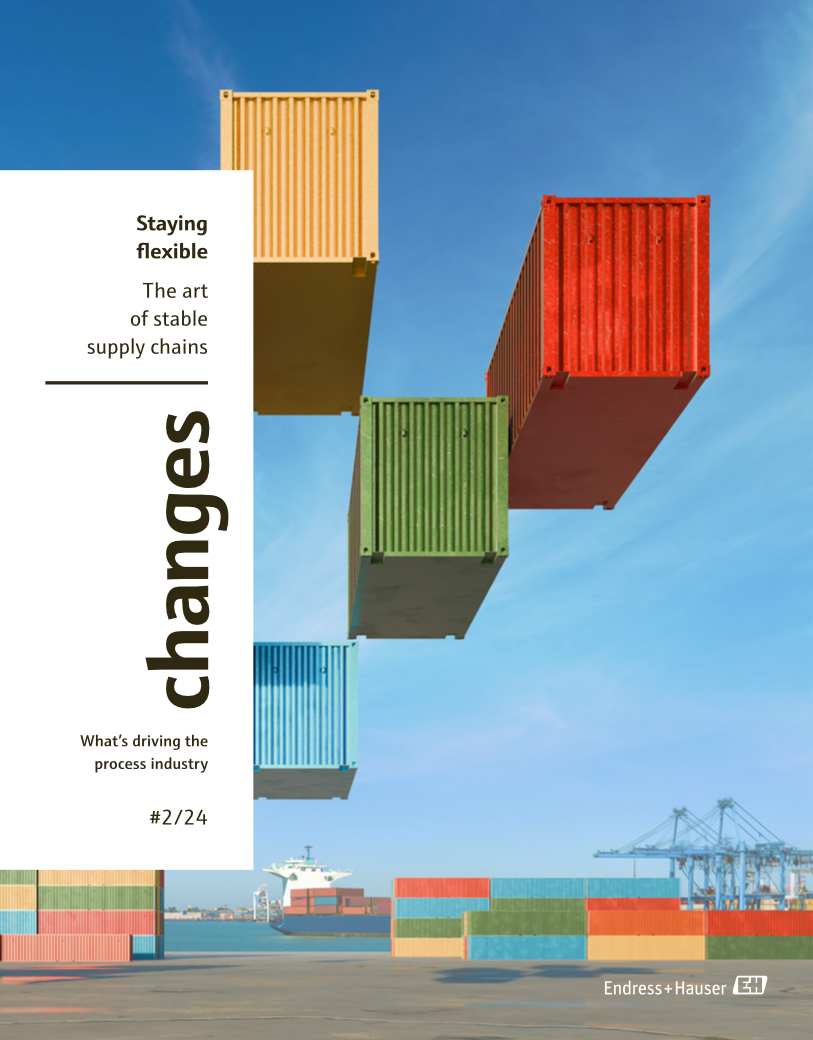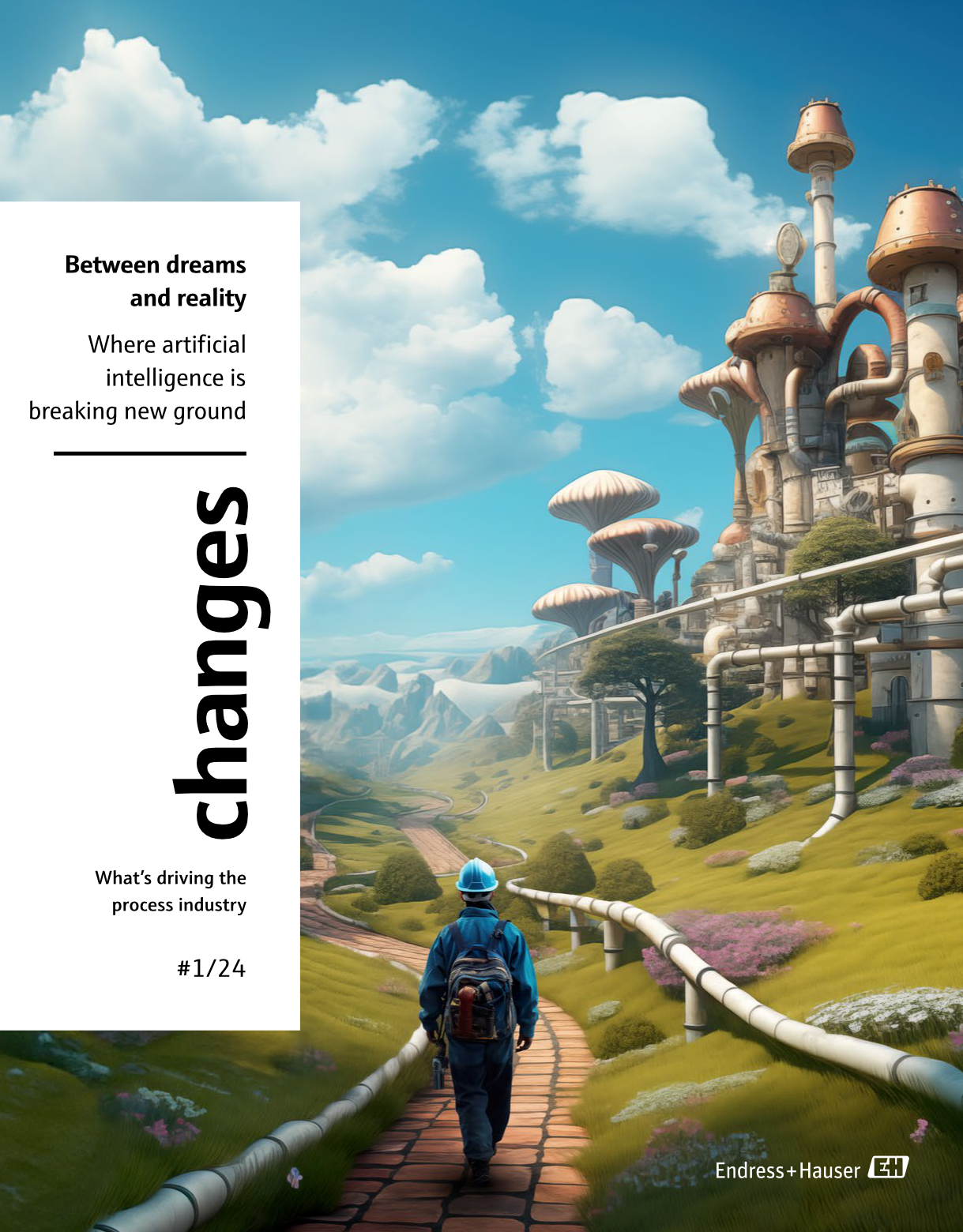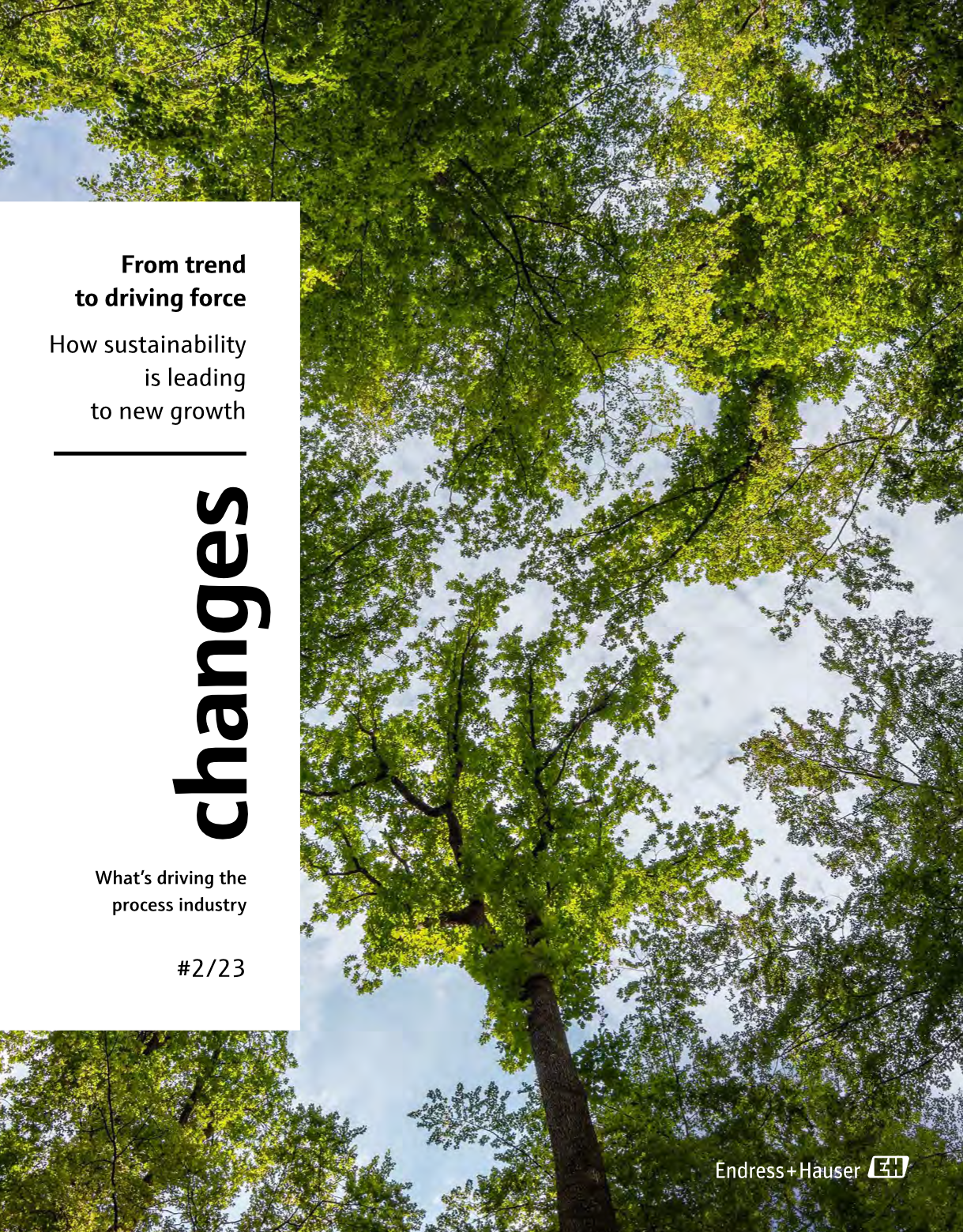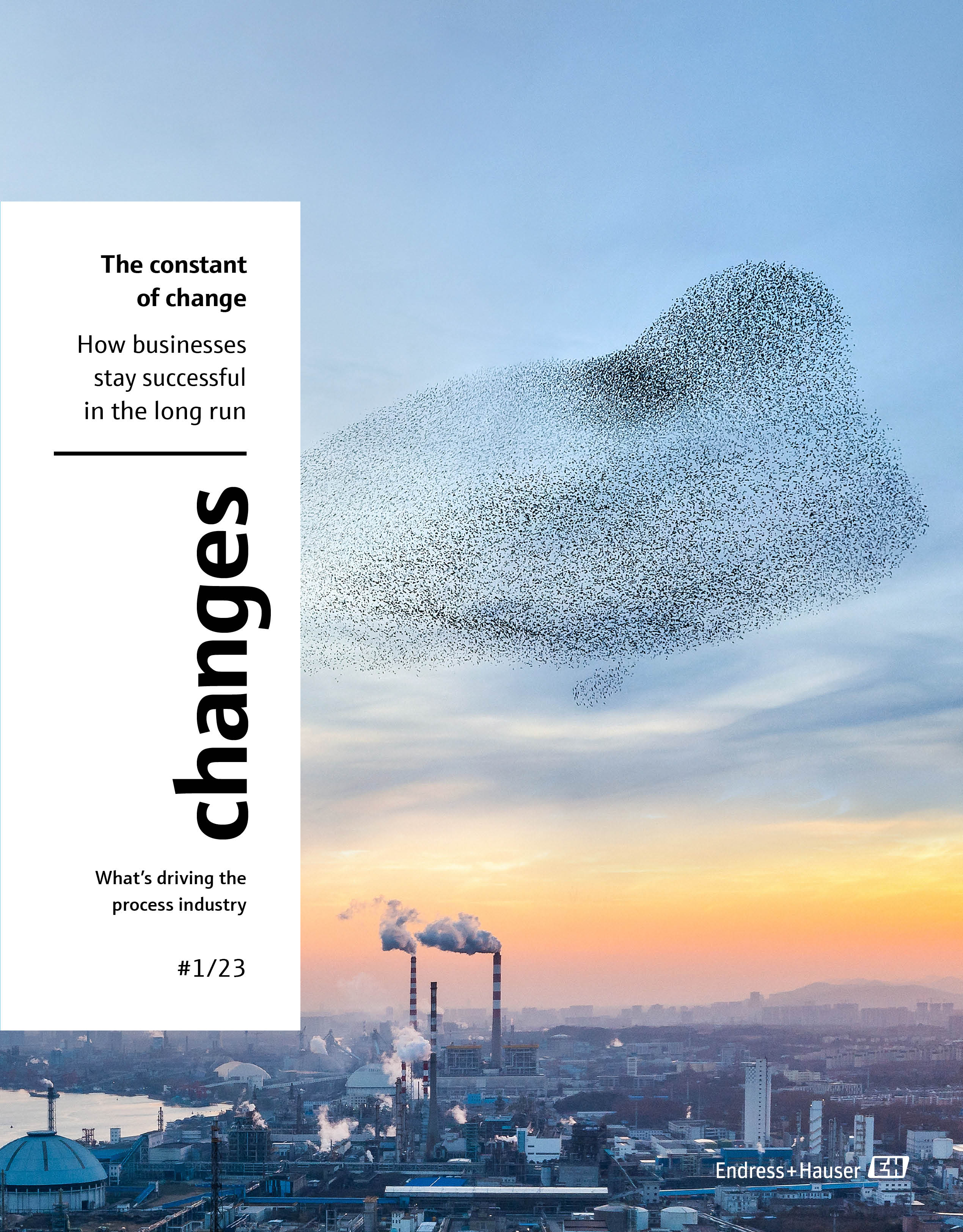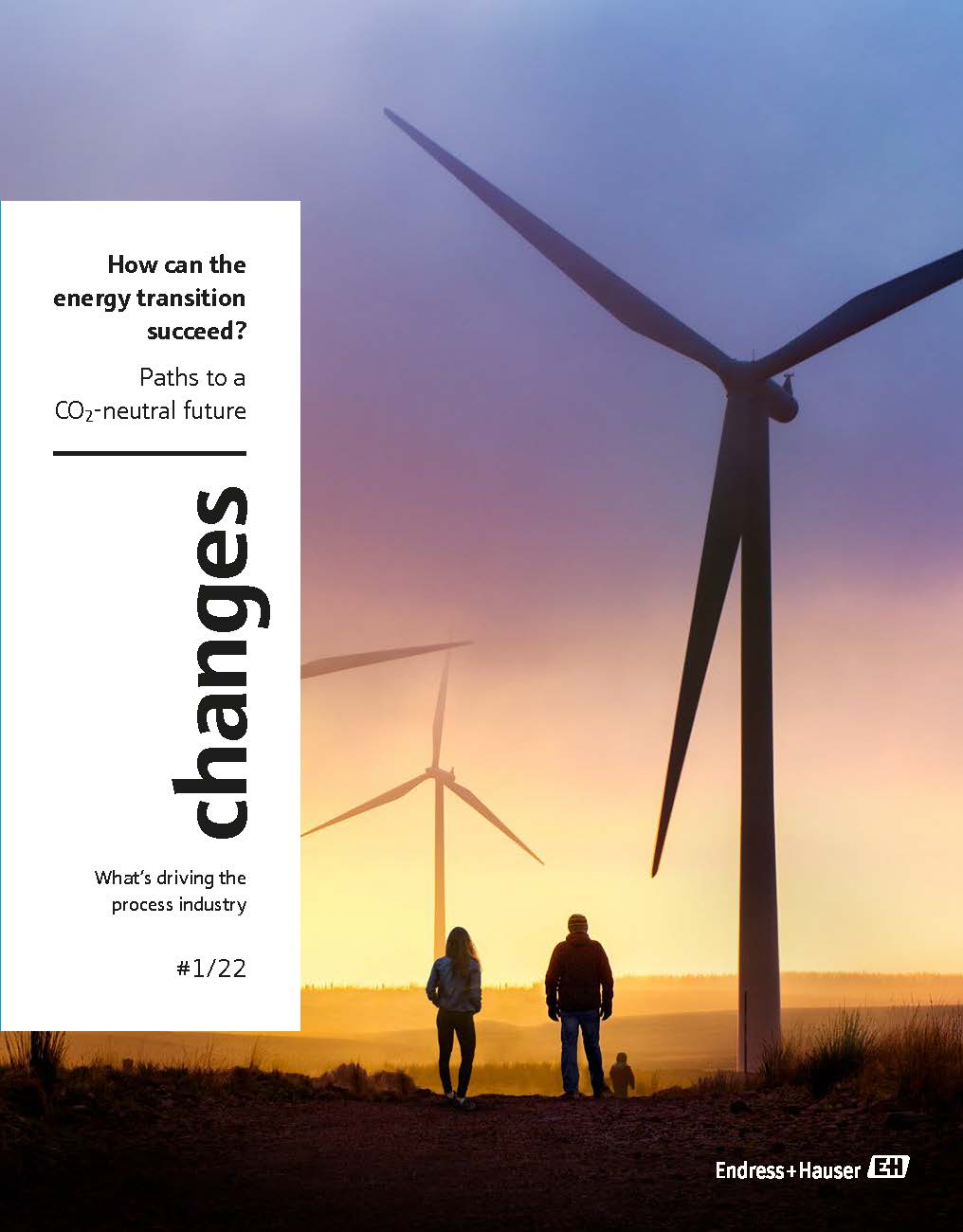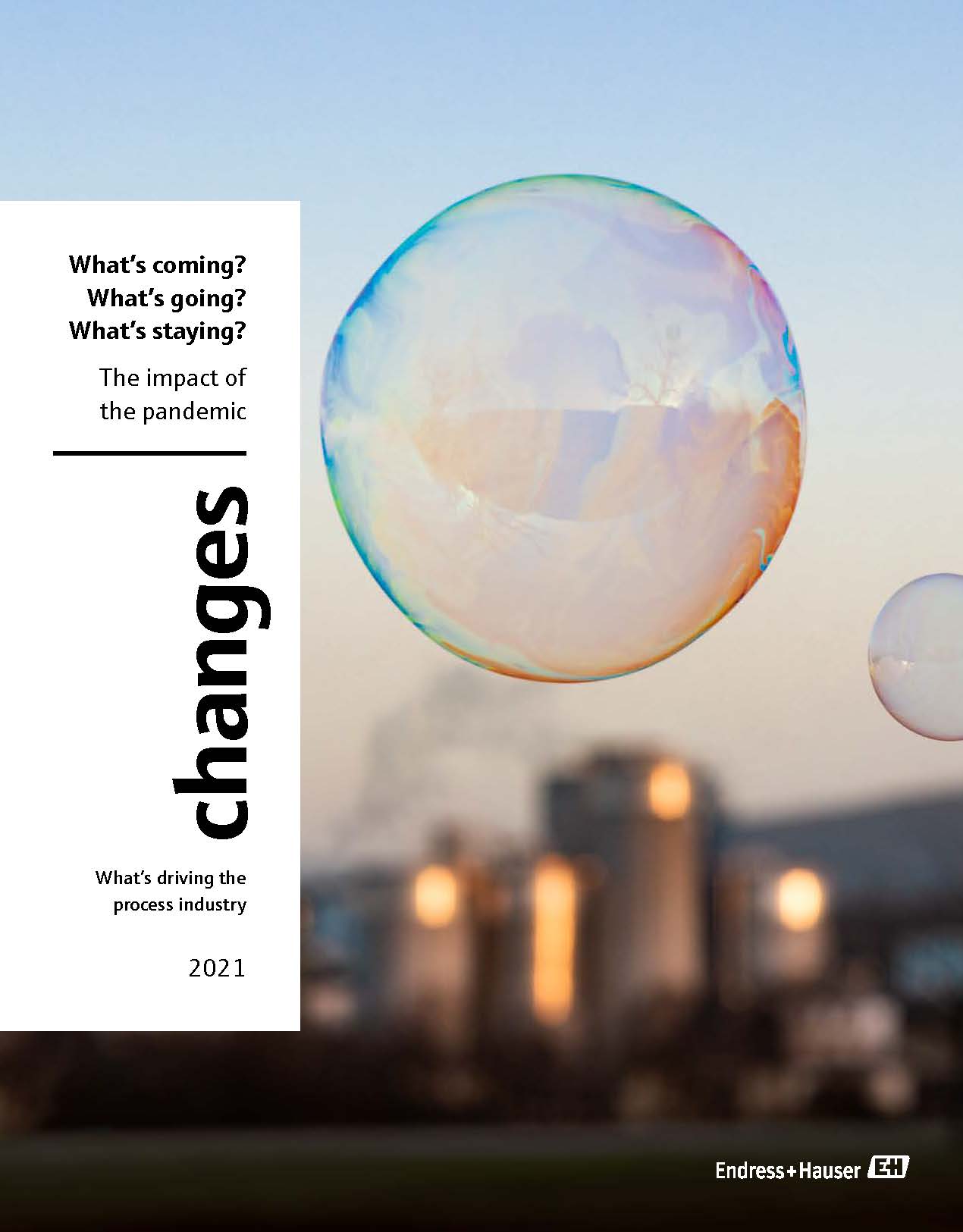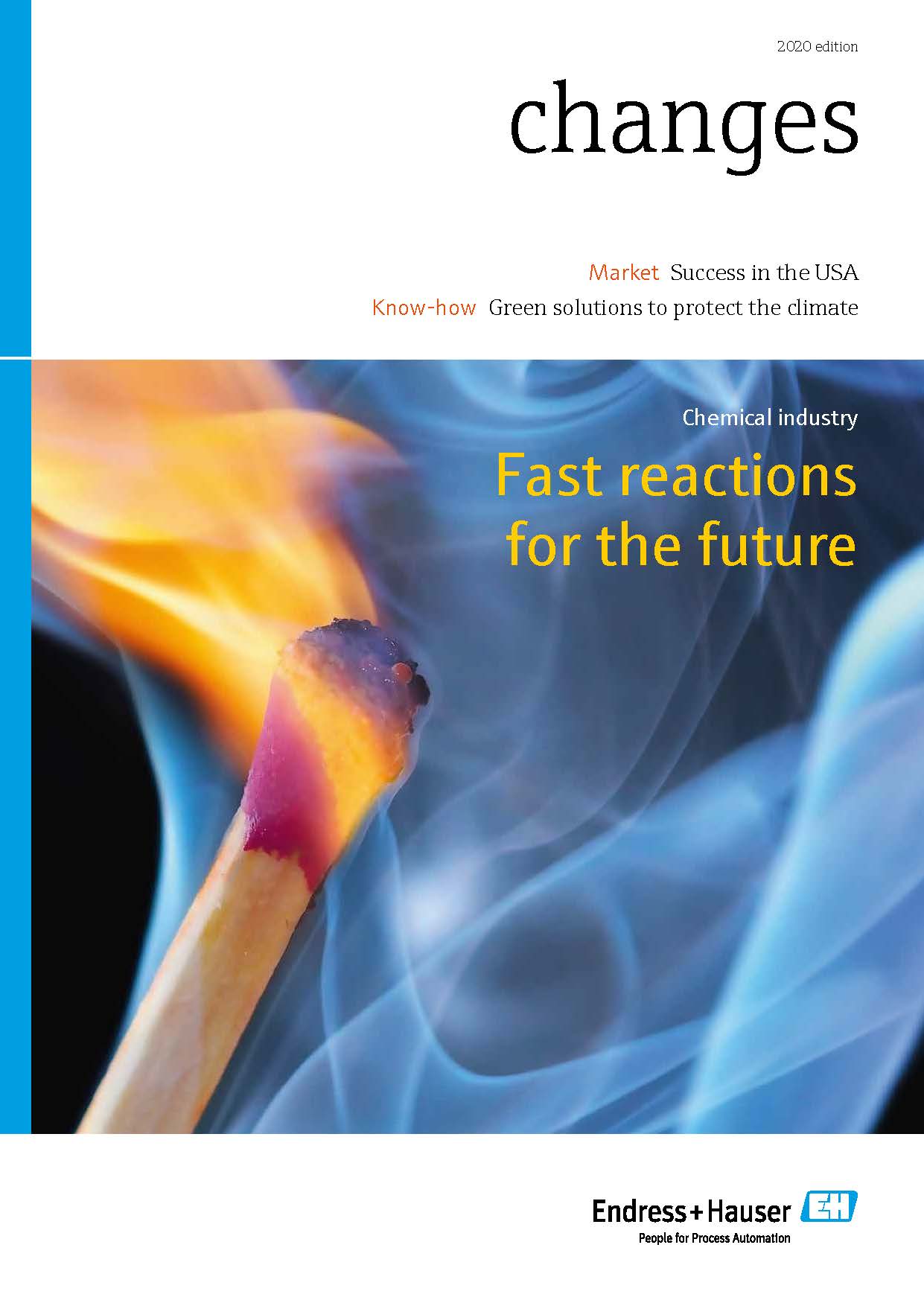The patterns of the world
Rebecca Page works as a data scientist at Endress+Hauser. Armed with a wealth of data, she gains new insights that plant operators can use to optimize processes and make better decisions.
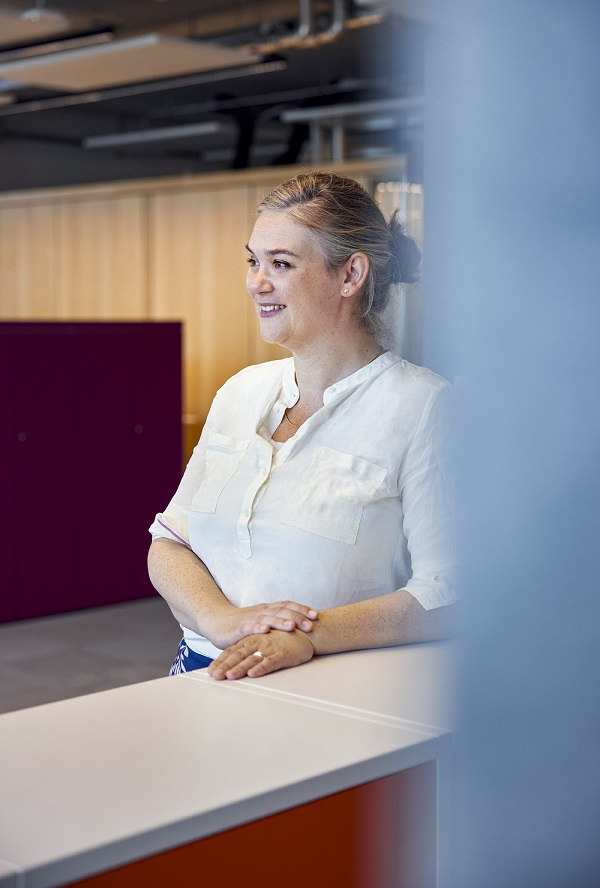
The asphalt glistens as Dr Rebecca Page makes her morning commute into the office. A summer thunderstorm has broken the heat of the past few days. The Birs – a river near Endress+Hauser headquarters in Reinach, Switzerland – is surging, its waters muddy. For most, the rain and its effects are nothing more than mere weather. For the data scientist, though, they are a sign: river water contaminated with microbes could seep into the groundwater catchments and pollute the supply of drinking water. Specialists from the municipal water company will have to go out and take samples. Rebecca Page has been working on an early-warning system for situations just like this. The system, once ready to use, will be capable of predicting which reservoirs and wells are at risk of contamination and sending a timely alert to the authorities.
Making forecasts with measurements and mathematics instead of samples and laboratories is the task Rebecca Page dedicates herself to every day. The expert data scientist examines a wide range of measurement, flow and simulation data to find out how everything is interrelated. That data will later be used in the early-warning system. She is also working on a way to measure the quality of a dairy product without sampling it, as well as a method to dose expensive flocculants into dewatering systems with the precision it takes to extract as much valuable metal as possible from silt and mud without clogging anything.
“I’m always fascinated by how you can derive something new from various physical measurements and other information,” Rebecca Page says. An expert in her field, she draws on raw, measurement and process data. She also must consider the context, such as the season, or the day of the week. For dairy products, she even has to take into account whether the cows were put out to pasture or kept in a barn.
“I’ve got one eye on the user, the other on the science,” says Rebecca Page, an environmental engineer who got her feet wet in data science while working toward her doctorate. Along with technical and logical understanding of matters, working in the field calls for abstract thinking skills and a healthy dose of tenacity. The data engineering alone (preparing data sets) can take days. “If the data isn’t valid, then neither are the insights we derive from it,” she explains. That in turn makes it impossible to train the algorithms designed to automatically spot anomalies later on. Describing interrelationships in a way that can be translated into scalable program code is the main challenge.
“Machine learning isn’t a magic potion that solves every problem,” Rebecca Page says. At the same time, it is a tool that creates new benefits along the entire value chain. And it is fueling the growth of the Endress+Hauser community for artificial intelligence where the data scientist is a considerable driving force. People from many different departments and business units are working hand in hand. What unites them is a mind for processes and a nose for how things are connected. It’s a job that inspires Rebecca Page day in, day out – and one that has found its way into her personal life as well: “When you’re out and about in the world, you suddenly start to see the patterns everywhere.”
“I’ve got one eye on the user, the other on the science.”
Rebecca Page
Expert Data Scientist
Published 02.12.2022, last updated 12.12.2022.
Dive into the world of the process industry through new exciting stories every month with our «changes» newsletter!
